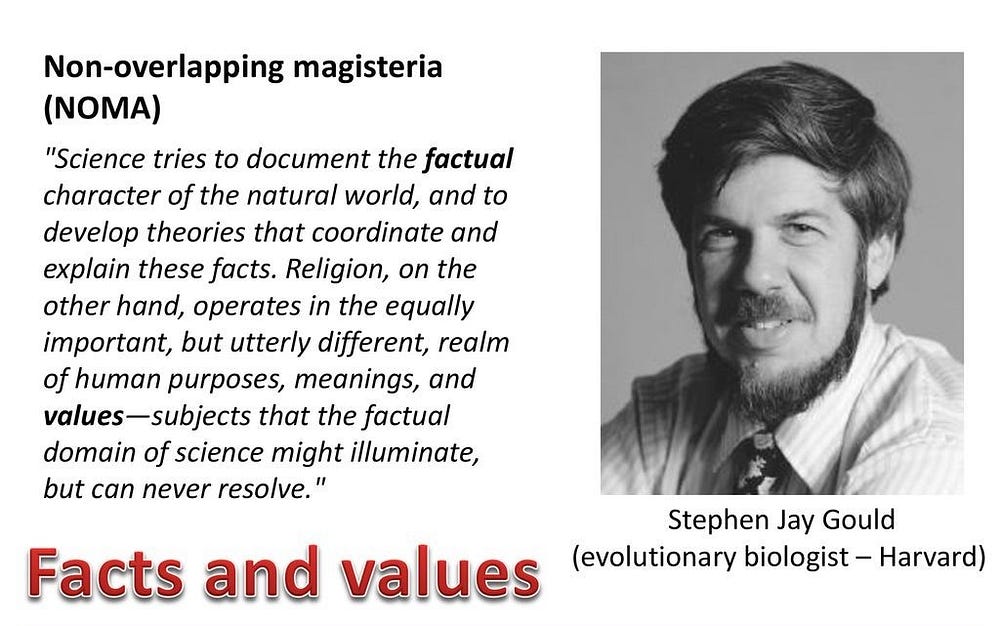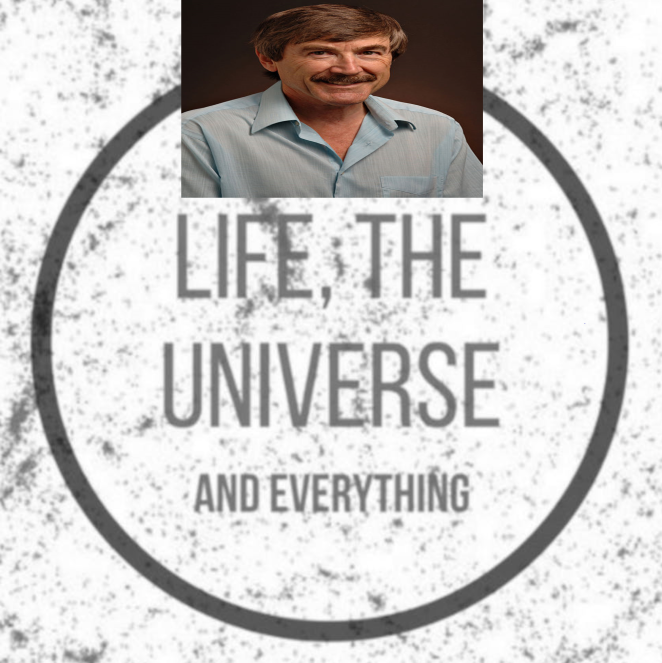Many religious people look for the (singular) meaning of Life… the Universe and everything. The existentialists, on the other hand, embraced the meaninglessness (or absurdity) of these very same things. Yet surely the latter position is just an inversion of a binary opposition. In Derrida’s terms, one half of this opposition is completely parasitical on the other half. Ironically, then, the existentialists embraced religious ways of thinking.

“I would warn you that I do not attribute to nature either beauty or deformity, order or confusion. Only in relation to our imagination can things be called beautiful or ugly, well-ordered or confused.” — Baruch Spinoza
Oddly enough, this essay was motivated by what the physicist and science writer Paul Davies wrote on the possible absurdity of the Universe. Thus, it wasn’t initially a reaction to what the existentialists or Albert Camus wrote on this subject.
Davies believes that if (what he calls) “the laws” of the Universe can’t be explained, then we must live in an “absurd” universe. I took issue with that position in my essay ‘Physicist Paul Davies’s Faith in His Idea That Science is “Founded on Faith”’.
In an op-ed article called ‘Taking Science on Faith’ (which was published by the New York Times), Davies argues that without an ultimate explanation of the laws of the Universe (or any answers to his deep questions), “then nature is a fiendishly clever bit of trickery”. What’s more, we are faced with
“meaninglessness and absurdity somehow masquerading as ingenious order and rationality”.
So why use the word “absurdity” here? (Davies also used the words “reasonless absurdity”.)
As many readers will know, the word “absurdity” (or “absurd”) is used all the time in this debate about the nature of the Universe and our relation to it. However, it’s very easy to view it as being used in an almost entirely rhetorical or poetical way.
The Word “Absurd”
The word “absurd” is sometimes defined as “extremely silly” and/or “ridiculous”. And the word “absurdity” can be used as a simple synonym for “unreasonableness” or “reasonlessness”.
Yet the word “absurdity” isn’t always (or even usually) used as a simple synonym of “unreasonableness” or “reasonlessness”. More relevantly, these definitions don’t capture what, for example, the absurdists and existentialists had in mind.
Basically, the definitions above simply aren’t heavy (or deep) enough.
The following definitions, then, may take us closer to the Deepness.
On the whole, the existentialists saw “absurdity” as the Universe “having no rational or orderly relationship to human life” (see here).
As for the absurdist playwrights and novelists (see here and here) of the 1940s and 1950s: they took absurdity to be the “condition in which human beings exist in an irrational and meaningless universe”. What’s more, in that irrational universe, “human life has no ultimate meaning”.
Ironically, it can be argued that the absurdists and existentialists were simply embracing religious ways of thinking.
What’s meant by this is that many religious people look for the (singular) Meaning of Life… the Universe and everything. The absurdists and/or existentialists, on the other hand, embraced the meaninglessness (or absurdity) of Life, the Universe and everything. Yet surely this is just a binary opposition. In Jacques Derrida’s terms, one half of the binary (i.e., the position that Life, the Universe and everything is meaningless) is completely parasitical on the other half (i.e., the position that Life, the Universe and everything is meaningful).
Indeed, according to John Foley, the French author, dramatist and philosopher Albert Camus accepted Jean-Paul Sartre’s religion-inspired definition of “the Absurd” as being the following:
“That which is meaningless. Thus man’s existence is absurd because his contingency finds no external justification.”
So what is that “external justification” to which Sartre referred?
Surely it must be God and (His?) “absolute values”.
That must also mean that most existentialists accepted the religious view on what is and isn’t absurd. The difference being that they embraced it.
Thus, again, existentialism was parasitical on religion (or on Christianity) in it also accepted the choice that we must make between universal meaningfulness or universal meaninglessness. However, instead of embracing universal meaning as most religious people do, the existentialists embraced absurdity instead.
In a strong sense, then, religion was still calling the shots. And that’s not a surprise when you consider the fact that nearly all the absurdists and existentialists were brought up in strongly religious (i.e., Christian) environments. (See “Existentialist concerns are essentially religious concerns”.)
What is Absurd?
It’s certainly not the case that all people define (or take) the word “absurd” in the same way.
Take the American philosopher Thomas Nagel’s examples of the absurd in the following:
“[S]omeone gives a complicated speech in support of a motion that has already been passed; a notorious criminal is made president of a major philanthropic foundation; you declare your love over the telephone to a recorded announcement; as you are being knighted, your pants fall down.”
[This passage can be found in Thomas Nagel’s paper ‘The Absurd’.]
Some people may well claim that the first example (i.e., “someone gives a complicated speech in support of a motion that has already been passed”) is indeed absurd. Yet many others won’t. (They will see it in various other ways.)
The second example (i.e., “a notorious criminal is made president of a major philanthropic foundation”) is surely more about something being morally and/or politically problematic, rather than absurd.
All that said, my interpretations of the word “absurd” (at least in these contexts) aren’t set in stone either. And that’s the problem here.
Nagel seems to disagree with this emphasis on contextuality.
Although Nagel takes a position against Camus and his stance on the absurd, he nonetheless sees absurdity (or the Absurd) as being a (as it were) real concrete thing.
Nagel even mentions the “philosophical sense of absurdity” (at least in relation to Camus), and explains it in this way:
“[I]t must arise from the perception of something universal — some respect in which pretension and reality inevitably clash for us all.”
Whether or not Nagel accepts this account or simply states it, it’s still not clear that all other accounts (even if philosophical) of absurdity need square with what Nagel, Camus or any of the existentialists wrote on the subject.
Moreover, perhaps Nagel’s account of absurdity is beholden to (or even parasitical upon) Camus’s account; just as Camus’s own account was beholden to the religion (or Christianity) he rebelled against (see here). That said, Nagel did reject Camus’s general conclusions. However, Nagel still offered his readers a single account of something that he deemed to be real — absurdity.
The following is what absurdity is to Nagel. Nagel tells us that
“[r]eflection on our minuteness and brevity appears to be intimately connected with the sense that life is meaningless; but it is not clear what the connection is”.
Nagel is both right and wrong on this. Many people may well reflect on the “minuteness and brevity” of their lives, yet they won’t also conclude that (Platonic) “life” is “meaningless”. Other people may well conclude that it is. So it depends on the individual.
Nagel is also right when he says that there’s no necessary (or immediate) connection between this minuteness and brevity of human life and meaninglessness. Again, the fact that “we are going to die” has no necessary connection to absurdity (or meaninglessness) either.
The Psychologies of Existentialists
Much of what has been written on the subject of absurdity is a case of writers, philosophers and religious people projecting onto Life, the Universe and everything (see ‘Psychological projection’). However, it isn’t the case that what people believe and feel passes over to Life, the Universe and everything.
So when it comes to the supposed absurdity and/or meaninglessness of Life, the Universe and everything, perhaps it’s all largely about individual human temperaments and psychologies. In other words, there are no (as it were) facts about any of this. (Unless we can refer to facts about — or the “verbal reports” of — the temperaments and psychologies of individuals and social groups.) Indeed, there aren’t even any across-the-board generalisations which can be made about what all (adult) human beings believe (or think) about Life, the Universe and everything.
So let’s heed some words of warning from Baruch Spinoza when he referred to the anthropocentric view of Life, the Universe and everything (or, at the least, the anthropocentric view of the Universe and everything). Thus:
“I would warn you that I do not attribute to nature either beauty or deformity, order or confusion. Only in relation to our imagination can things be called beautiful or ugly, well-ordered or confused.”
[I must come clean here and say that I’ve quoted this passage many times in my essays.]
Spinoza’s central philosophical point is that Nature can only (as it were) be. All the rest is simply (in contemporary parlance) human psychological projection.
So let’s rewrite Spinoza’s passage above to make it more relevant to the theme of this essay:
I would warn you that I do not attribute to Life, the Universe and everything either meaningfulness or meaninglessness. Only in relation to our imagination can things be called meaningful or meaningless.
Another way of looking at all this is to invert the usual way of looking at (existentialist) absurdity.
Life, the Universe and everything didn’t bring about the “depression, anxiety and despair” of the existentialists. These people might well have already been suffering from varying degrees of depression, despair and anxiety, and only then did they develop their views on absurdity and meaninglessness. In other words, the philosophical views of the existentialists were a least partly (or even largely) a result of their already-existing psychological (or brain/genetic) conditions. Or, at the very least, there was a subtle interplay between the psychological and physiological states (as well as their temperamental dispositions) of the existentialists, and their philosophical positions.
Conclusion
Perhaps the existentialists should have seen their own views as being absurd and/or meaningless. After all, if Life, the Universe and everything are absurd, then existentialist views about these things must also be absurd (or meaningless) too.
Who knows, perhaps some existentialists and absurdists acknowledged this.
So Life, the Universe and everything aren’t meaningless (or absurd). And they don’t instantiate meaning either.
What’s more, they don’t lack meaning for all individuals. They lack meaning for particular individuals at particular times. And, at least in the cases discussed in this essay, Life, the Universe and everything lacked meaning for French intellectuals in the 1940s and 1950s (see here).
Finally, perhaps absurdity should neither be embraced nor rejected. And that’s primarily because the word “absurdity” (at least as used by absurdists and existentialists) isn’t always useful or accurate in most philosophical and scientific contexts.
My flickr account and Twitter account.










